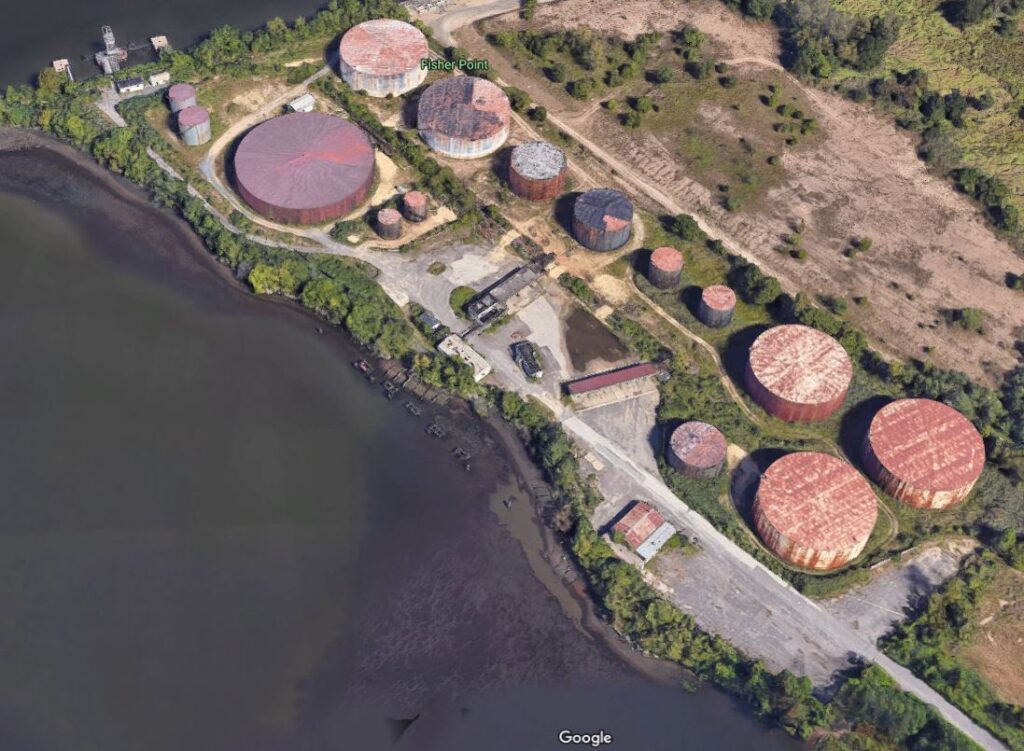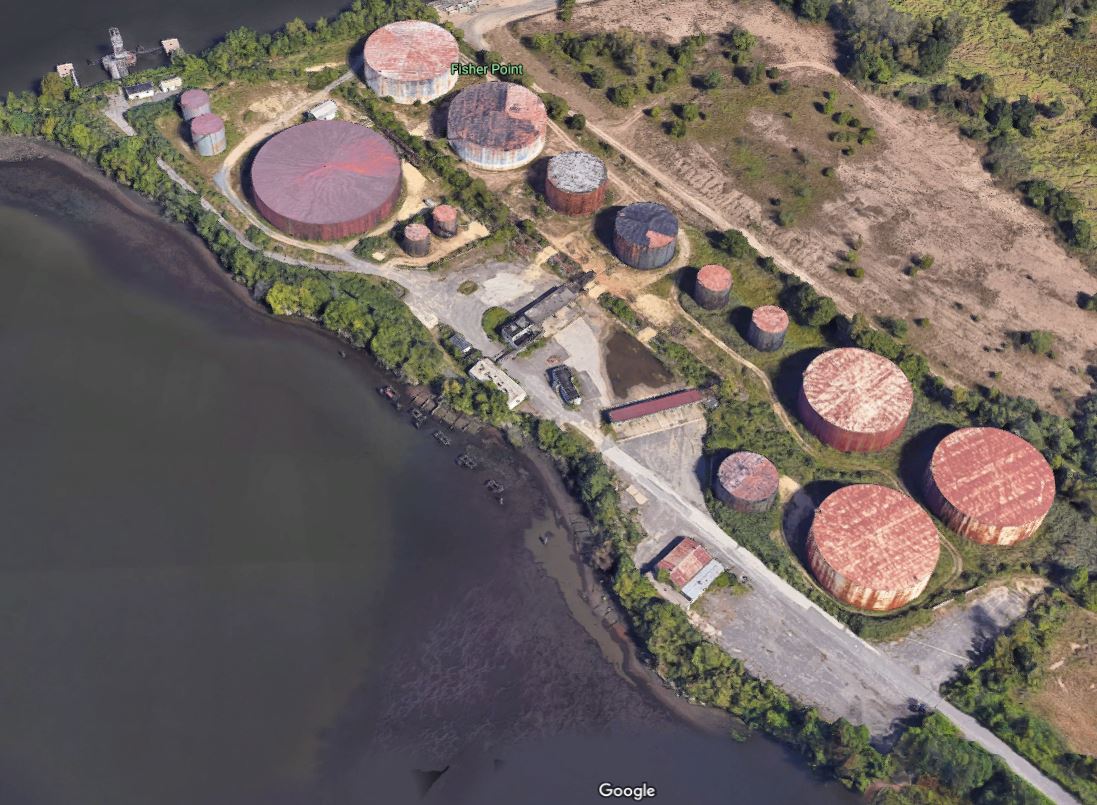
This past week Governor Gavin Newsom stated that California would ban gas powered cars in 15 years. Also, an article appeared in Forbes magazine on September 26. It is predicting that Tesla’s proposed $25,000 electric car would mean “Game Over” for gas and oil. That made me think. What happens when cars go electric to the massive infrastructure that has evolved over gasoline since early in the 20th Century?
I experienced the same phenomenon at a smaller scale when I first graduated from college with my Civil Engineering degree. A major oil company hired me. The engineering position that I took should in hindsight have been eliminated by the company, but I was hired anyway. The position involved taking care of product distribution terminals whose main products were heating oils. The problem was, everyone was switching from oil to gas. Our terminals were idle for the most part, and there was not much for me to do. I saw there was no future in the job, so I left after about two years. This post relates my experience to what I think will happen in the future. I will do this by going through the steps it takes to go from crude oil to final product.
Exploration and Production
When heating oil sales dropped, it did not affect this initial stage much, if at all. Sales in gasoline and diesel oils made up for the difference. That will not happen this time. According to the EPA, a barrel of oil (42 gallons) produces 19.4 gallons of gasoline. 12.5 gallons of that is distillate (diesel), 4.4 gallons of jet fuel, and 6.0 gallons of other products. If we go to electric cars, almost half of a barrel of crude oil will not go to gasoline. Figuring we will go to electric trucks too, that eliminates a good part of your distillates also. Some may still go for marine diesel, but ships more and more are going LNG, so that market will diminish. If this switch happened today, we would need less half of the crude produced.
When cars go electric, it is doubtful we will see a big growth in other uses for oil, such as for chemicals. So the amount of crude oil needed will drop, a lot. That will have a big effect on a lot of economies. Think oil producing states like Alaska, Texas, and Oklahoma. Oil producing countries in the Middle East will seriously suffer, along with countries in West Africa, and Russia. Will that bring on instability? How will that affect the world order? There will certainly be “green jobs”. However, windmills and solar panels in the US will not help people displaced from oil jobs in Nigeria or Angola.
Refining When Cars Go Electric
Once oil comes out of the ground, it must go to the refinery. In some cases, the refinery is located close to the oil fields. However, in many times crude is transported by tanker or rail to the refineries. During the time I worked for the oil company, we had a refinery in the Northeast. Our crude came to us by tankers from Texas and Louisiana in the US, and overseas. More recently the same refinery is getting crude by rail . This reflects the change in source to shale oil in the middle of the country. That will go away. When the market for fuel oil went away, it did not really change our need for refineries. We just adjusted our output. That will not happen this time, without the need for gasoline, we will not need as many refineries.
I suspect what refineries remain will be the ones closest to the oil fields. That will lower the cost of transportation. That will eliminate the tankers carrying the crude, along with the rail cars. The tankers taking crude from the Gulf of Mexico to our Northeastern refinery were “Jones Act” ships. Jones Act Ships are built in the US and manned by a US crew. There are only two US shipyards left that build commercial tankers. Without the need to haul crude to refineries, less tankers will be needed. Jobs as mariners will disappear for both US and from other countries. The business for commercial shipyards outside of the US will drop too. Some of the ship building and maritime jobs will be picked up by the need for service vessels. These will be needed to construct and maintain offshore wind farms, so the pain from that may be mitigated.
Now, lets look at the refineries. Refineries employ a lot of high paid skilled people. Without sales of gasoline, and shutting down of refineries, all those workers will be displaced. Some of the workers in refineries have skills that can be transported to other industries (like electricians). Others, that have industry specific jobs will not have such a good time of it. Many jobs in refineries, like in steel mills, just don’t translate into other industries. That will be very painful in a lot of economies. Cities like Port Arthur, Texas will be seriously affected when cars go electric.
Supply and Transportation After Electric Cars
When our customers dropped our product for natural gas, our supply and transportation changed drastically.. Some heating oil products like #4 oil and #6 oil had the consistency of tar when they were cold. You can’t carry them by pipeline because of this. We transported them by ship or barge to the supply terminals. When the sales of these products went away, there was no need for the ships and barges used for transport. A good part of our storage terminals stored the heavy oils like #4 and #6 oil. They also stored the lighter oil used for smaller commercial buildings and homes, #2 fuel oil. That caused a good number of our terminals to shut down, and the loss of jobs. Many of those workers were older. They had specialized high paying jobs, and it was mostly impossible for them to find decent work elsewhere.
Oil companies transport gasoline from the refineries to storage terminal by pipeline. In some cases by barge or ship if pipeline access is not there. The pipelines will not be needed like they are now. Oil companies also transport #2 fuel oil (which is also used as diesel), and aviation fuel by pipeline. There may be some residual market for gasoline for a little while, and for diesel and #2 fuel oil. Airlines will still need aviation fuel. The question is, how much pipeline capacity will be needed? Will there be consolidation of pipeline companies? Will oil companies cut pipeline capacity? For example, the Colonial pipeline is two parallel lines. The Colonial Pipeline Company built the second one in the late 70’s. I say yes to both questions.
Now we get to the supply terminals. When I look at aerial photographs, I see my company’s old terminals no longer exist for the most part. Gasoline is a commodity, one brand is the same as another. Pipeline companies do not differentiate on brand from another, they mix it all together. The only difference in brands is the oil companies put a different additive in the gasoline. Terminal operators add it as they load the product on the truck to the gas station. So, even when I worked for the oil company, we had product swaps. We loaded gasoline on our trucks from competitor’s terminals because they were closer to our gas stations. It makes more sense for an oil company to have its product stored by a third party. That company also can store other brands.
So, we already see fewer supply terminals for gasoline and diesel. When we go to electric cars, those terminals will not be needed. Will there be terminals for some sort of residual demand? I suppose so, for a while, until it is not feasible. Those will close, although we will not see a huge number of displaced people. Even while I worked for the oil company, we were automating our operations. The number of personnel needed was dropping.
Gasoline Marketing In An Electric Car World
I suspect this will be a big change. We will not need gas stations. I am certain there will be “charging stations”. However, people will be able to charge their batteries at home or work. So, what happens to the corner gas station? It will go away. At the time I was in the business, we were switching from “service stations” to “convenience store stations”. We figured people had to stop to buy gas, and at the time, go in and pay for it. Once inside, we could easily tempt them to buy a coffee or soft drink. They’d also want to buy something to eat. Maybe they would pick up a gallon of milk, a loaf of bread, or six pack of beer. All of this was high margin stuff, and the gasoline sales generally just paid the rent.
There have been convenience stores that were not gas stations, and there will certainly be again. However, I am wondering whether we really will have much left in the way of convenience stores. I am not going to make a special stop in a convenience store if I do not have to. If I need a gallon of milk, or loaf of bread, grocery stores are closer and open late hours. I suspect convenience stores may become much rarer in the future.
In the End
In summary, it looks like there will be a major change politically and economically when we go to electric cars. We have had changes due to technology before. However, I think this one will cause much more ground shaking changes than we have seen. We will see a lot of workers with skills no longer in demand. Many of them will be older, so retraining into other entry level positions will not do them much good. The change will disrupt economies, and we could see a lot of instability.






